Hi. I’m Nookie.
Hi, Nookie.
I’m a recovering liar. I’ve been in recovery for ten years this December, and I’m very proud of myself.
Yay you, Nookie!
Yeah, thanks. I appreciate it. Here’s my story:
I enjoyed lying for most of my life. A lot. I mean, lying got me out of a crap ton of trouble.
It also helped me make friends.
As a child, I was quite introverted (still am, different effect, now), and I read a lot (still do), and spent a lot of time in my head (three for three). I didn’t have a lot of friends, and we moved every 2-3 years or so, so I didn’t have a chance to make and keep them for long stretches, either.
Lying allowed me to use my creativity to tell stories. This fascinated other children and adults, and gave us instant conversational topics and positive feedback.
Even when it wasn’t real. Especially when it wasn’t real.
This is how I started my addiction to lying.
It wasn’t until I was in my mid-30s, and I was diagnosed on the ASPD spectrum that I even really realized it was a fault. My lies had literally until that point had no real consequences that could have shaken my behavior.
But I decided to make a real change in my life, and I realized as part of that process that I wanted to stop lying.
Because lying did the opposite of what I was trying to accomplish: It gave me friends who didn’t like me, they liked a fantasy version of me.
That meant, I did not get too close, or open up or whatever, because I couldn’t afford to get caught. So, I didn’t have many close friends.
And I wanted real friends. Lots of them.
I didn’t lie all the time or to everyone or about everything, so I figured it would be easy to stop.
It wasn’t.
Because once you start lying, it easily becomes second nature. Your version of a story becomes your automatic go-to truth. You lie without realizing it, then it’s incredibly embarrassing to fix that lie. Because, well, how, exactly do you say:
“Uh, well, I lied by accident there. I told you X because that’s what I tell everyone, but it’s not true. Y is true, and I’m sorry I lied.”
Just like that, really.
But it sucks.
Telling a lie immediately rewards the brain’s pleasure centers (of certain people) with a feeling of safety and relief (I am safe from trouble or anger or…) or joy for those who like fooling others (I got away with it, they don’t know!), which is incredibly addictive.
Lying is hard to overcome, even for those who want to, thanks to four primary issues:
- Shame: John Bradshaw, a leading authority on addiction, believes that shame is the driving force behind addiction. Shame is recognition of wrongdoing, but without a separation of one’s self from the wrongful act. Shame processes mentally as “ I made a mistake and I cannot recover. I am a failure. I am defective,” rather than “I made a bad choice and acted badly. I need to change and make up for my mistake.”
- Negative Consequences: People with addictions hope that things will work themselves out without them having to take any action. So they convince themselves that they can avoid the consequences associated with their bad choices. This avoidant coping style is common in addiction.
- Criticism and Confrontation: Intense shame often makes it difficult for addicts to handle criticism, so they lie to avoid confrontation or other circumstances where criticism of them may arise.
- Fear of Repercussions: Addicts at some level know that sooner or later they will have to change if they are to survive. But fear of the repercussions of returning to a state of honesty (shame, guilt, possible additional damage to relationships) makes it difficult to commit to this path until all possible options for avoidance have been exhausted.
Why am I telling you all this?
Because someone (who has asked to remain anonymous) wrote to me a few months ago, with the following:
I have read enough to know you don’t take kindly to lying, which I think might give you an interesting perspective.
If there is a violation of trust that involves a history of lying, is it possible to rebuild trust and move forward? How the heck do you do that without going insane? How can you deal with fears of the lies continuing or the potential end of the relationship? How do you determine if the relationship should change or end?
I responded.
So, if I were to look at lying as addictive behavior, then there might be more out there to research, since addiction is something people write about quite a bit.
And I do think the similarities are there.
The liar would need to take responsibility for their lies and want to change. You could not force a change, nor could you invest too much of yourself to make that change happen, without going a bit crazy.
Does that make sense?
And since that time, I’ve done some research on lying, and whether it is an addictive behavior.
It is.
It even has official terms:
- Compulsive Lying
- Reflex Fraud
- Duping Delight (for taking joy from fooling others)
And different types of lies:
- Denial is not limited to addiction. It is a subconscious, protective mechanism that the brain uses to prevent a mental “computer crash” when an experience is too traumatic to be processed immediately.
- Lying is a deliberate changing of the truth, by either re-stating facts as something different, or by “adjusting” or leaving out certain portions.
- Delusions are distortions of reality, akin to “wishful thinking,” where the mind subconsciously or unconsciously comes to believe that the self-created distortions are real – at least in the part of the mind where the addiction lives and thrives.
There are many people who lie, and for various reasons.
I have never met a person who has not ever told a lie, or who will not, given the right set of circumstances. You can tell a lie now and again for what you think are the right reasons, and still be a genuinely honest human, in my eyes.
There is a whole range from ‘genuinely honest human’ to ‘compulsive liar’ to ‘lies maliciously,’ though.
My personal lies were mostly harmless, but detrimental enough to me and my self image, and how I engaged in relationships that I KNEW I had to give them up to get more from life.
Some experts suggest a 12-step program for lying. I’m not much of a joiner, so I didn’t personally go that route.
I did what I do in any situation in which I want to learn a new skill (telling the truth as often as possible, in this case): I read books, I practiced. I failed. I learned to own up to it, I apologized, I took the hits, and I grew.
I started small by being radically honest online, with people I didn’t know, and who could reject me without actually affecting my life much. I build up my truth telling muscles for 6 months or so, then merged that into my offline life.
Nearly ten years later, I would count myself as one of the most ethical and honest people I know. Because I tell the truth with intent, now. It’s my new habit.
Some people would likely prefer that other me, to be honest. But she’s not welcome here any more.
For those who have liars in their lives…
I’ve been there.
Oh! There was this man. Beautiful. Sexy. Fun to be around… And he lied from the first moment. About everything. His age, when he sent me his first message. His parents (he was an orphan, oh wait, no he wasn’t). When he would arrive to take me out. Whether he had sex with others and whether he wore protection…
I don’t know what to say, really.
I dumped him, and fast. As soon as I ripped the blinders off. I had to, for my personal safety and that of those in my life.
Someone else, who lied about things that maybe weren’t as foundational? Or that I had spent more of my life with?
I still think it might be a deal breaker for me.
I grew. I changed. I am a different person, after all.
But, I ask myself, would I have done that, could I have done that, if I had people around me, cocooning me, being there for me?
I just don’t know.
I can only suggest, as I did before, look up everything you can on what it’s like to love an addict of any kind, and decide what you can and are willing to do.
I wish I had more for you, beyond actually starting this conversation. Maybe others will have views to share.
(Many points taken from: Liar, Liar: How to Break Free from Habitual Lying)


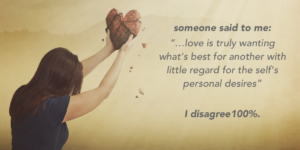
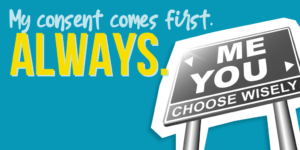
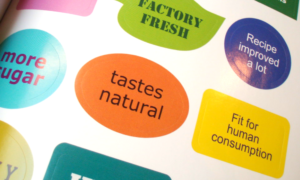
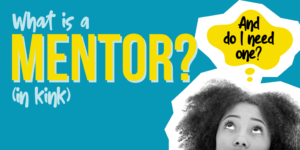

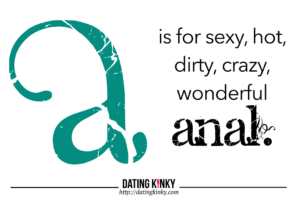
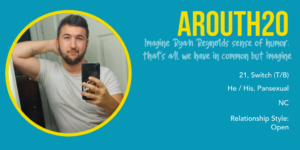
One Response